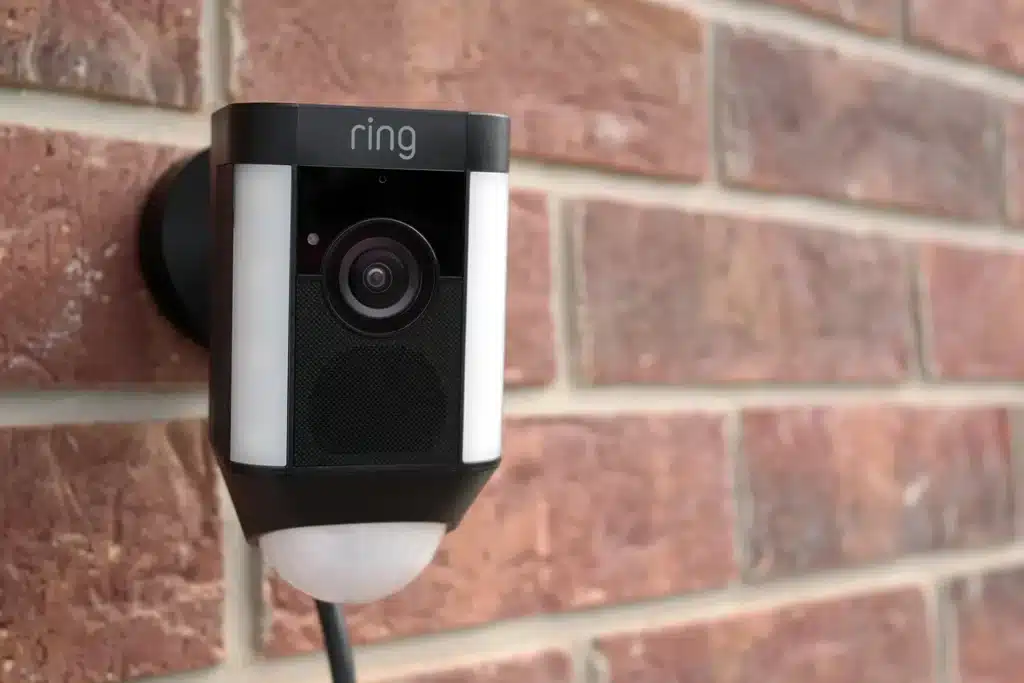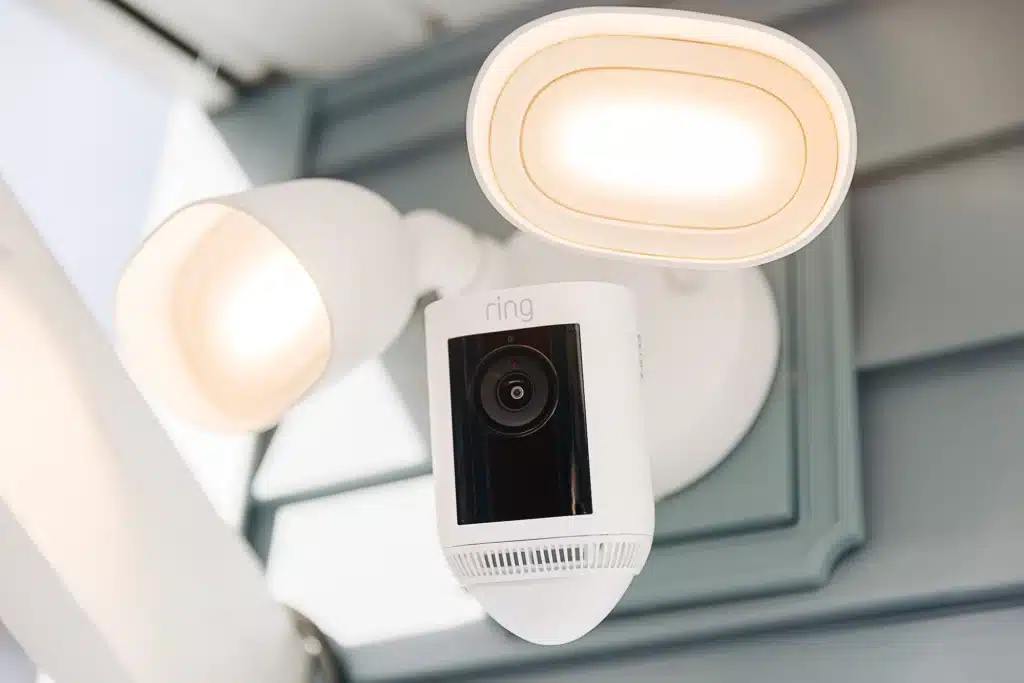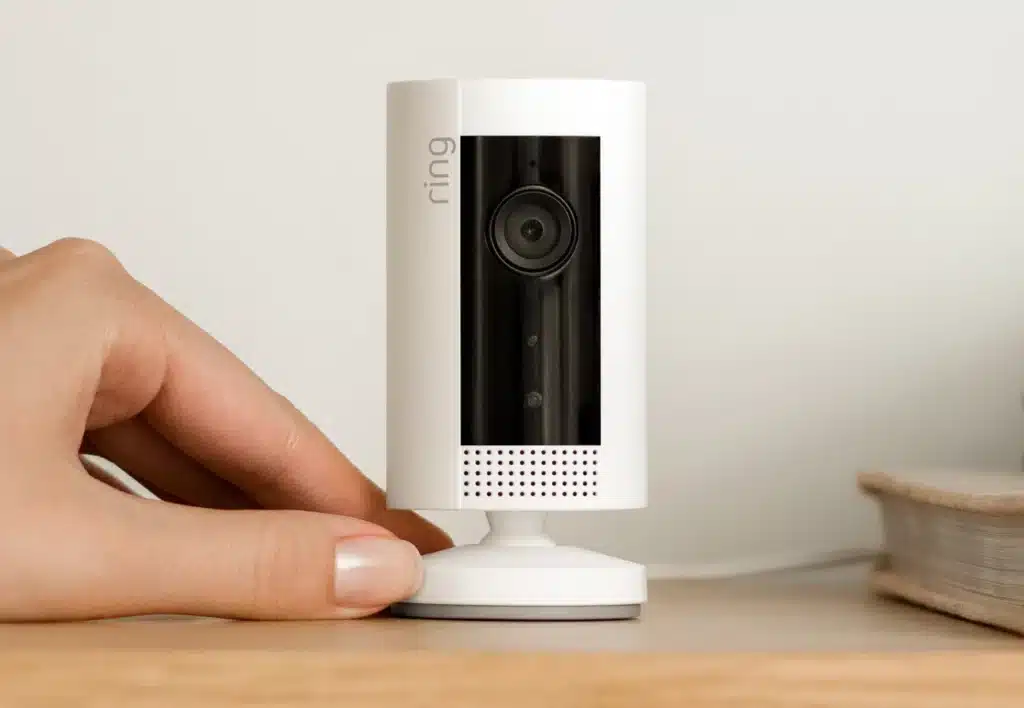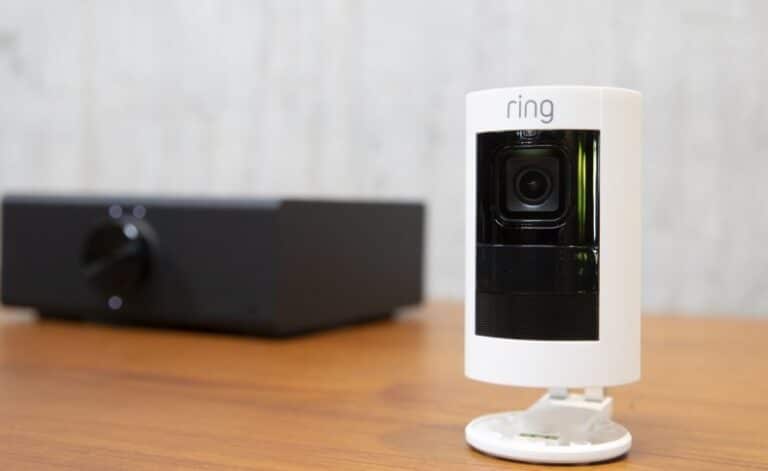Introduction
Are Ring Cameras Waterproof: The advent of smart home security systems has revolutionized the way we protect and monitor our living spaces. Among the leading innovations in this domain, Ring cameras have garnered widespread popularity for their ease of use, advanced features, and seamless integration with smart devices. In this modern era of unpredictable weather patterns and extreme climate events, the durability and weather resistance of outdoor security cameras are essential factors for homeowners and businesses alike.
Due to their widespread use as outside security measures (on porches, driveways, and gardens), knowing that Ring cameras are waterproof is essential. Here, we take a close look at how well waterproof Ring cameras actually are. To learn how the cameras function in various climates, we will analyze data from both users and experts. We’ll take a look at a variety of ring cameras, from compact inside models to robust outdoor variants.
Different models have different waterproofing, thus a careful analysis will reveal the best solutions for various conditions. Understanding Ring cameras’ waterproof capabilities helps homeowners choose installation places, maintenance, and reliability. This report provides vital information to protect investments and ensure property security.

Are Ring cameras waterproof?
Ring doorbells and outdoor security cameras are water-resistant and designed to withstand normal rainfall and snow. It Ring products are not waterproof and should not be submerged in water or sprayed with high pressure water.
Ring cameras are weatherproof, but knowing their waterproof qualities is crucial for effective use and protection in all weather conditions. While “waterproof” implies complete protection from water incursion, no electrical equipment is completely water-proof.
Ring makes indoor and outdoor cameras with varied water resistance. Outdoor versions, designed for the elements, have higher waterproofing ratings than inside models. IP (Ingress Protection) codes show a camera’s ability to withstand solid particles and water.
IP ratings have two numbers: dust and filth protection and water resistance. For example, an IP65 rating on an outdoor Ring camera protects against dust and low-pressure water jets.
Can Ring cameras be used outside?
The Ring Stick Up Cam is a state-of-the-art security camera that can be installed either indoors or outdoors, giving you peace of mind no matter where you choose to put it.
Many ring cameras are designed specifically for use in the great outdoors. Popular smart home security camera brand Ring offers a variety of versions for outdoor use. These outdoor cameras are weatherproof and provide reliable surveillance and security for homes and businesses.
Outdoor Ring cameras are built to withstand rain, snow, and humidity. They have waterproof housing to protect internal components from water and dust. Some models have an Ingress Protection (IP) rating for solids and liquids.
Ring cameras must be properly fixed and fastened outdoors to provide a clear view of the surveillance area. You can put them at entryways, driveways, patios, and other areas that need monitoring. Ring cameras outside integrate well with the Ring app and other smart home devices. Users can receive real-time warnings, view video, and interact with visitors remotely, improving security and convenience.
How do I keep rain off my Ring camera?
How to Protect Ring Devices from Natural Elements? You can use shields or waterproof covers to protect your device against direct sunlight or rainwater. In case of extremely cold (below -5 degrees Fahrenheit) or extremely hot (above 120 degrees Fahrenheit) temperatures, you need to check the batteries regularly.
Rain should stay off your Ring camera for best performance and lifetime. Ring cameras are weatherproof, however protecting them from heavy rain can improve their durability and performance. Some practical Ring camera rainproofing tips:
Proper Placement: Mount the camera in a natural rain shelter. Under eaves, overhangs, or covered porches can protect the camera from severe rain. Angle the camera slightly downward with an adjustable mounting bracket. This keeps raindrops off the camera lens, ensuring a sharp shot and minimal distortion.
Weatherproof Housing: Buy a Ring camera-specific weatherproof housing or cover. These enclosures shield against rain, snow, and other elements. Try a gutter extension if your camera is near a gutter to deflect rainwater away. This reduces water damage and exposure.
Regular Maintenance: Check camera and housing for wear and damage. Periodically clean the camera lens and housing to eliminate dirt, debris, and wet spots that may affect the view.
Use Privacy Zones: The Ring app lets you tailor the camera’s field of vision. Adjusting these zones excludes raindrop-prone locations, decreasing camera performance issue.
Why is my Ring camera blurry after rain?
If the lens on your Video Doorbell or Security Camera appears blurry, please use a dry microfiber cloth to gently wipe down the lens of any dirt or condensation. I’d also recommend ensuring any protective plastic or films have been fully removed from your Ring device.
If your Ring camera appears blurry after rain, there are several potential reasons for this issue. Rainwater and moisture can have adverse effects on the camera’s lens and image quality, leading to temporary blurriness or distortion. Here are some common factors that may cause your Ring camera to become blurry after rain:
Water Droplets on the Lens
Rainwater can leave tiny droplets on the camera lens, obstructing the view and causing images or videos to appear blurry. Even small droplets can have a significant impact on clarity, especially if they accumulate over time.
Water Inside the Housing
If water manages to seep inside the camera’s housing, it can affect the internal components, including the lens and image sensor. Moisture within the camera can lead to fogging or condensation, resulting in blurred images.
Dirt and Debris Buildup
Heavy rain can dislodge dirt, dust, or debris from surrounding surfaces, which may then settle on the camera lens. This accumulation can cause blurriness or reduce image sharpness.
Improper Placement
Unprotected cameras in the weather or elements are more likely to have these issues.
Lens Damage
Continuous exposure to rain and other harsh weather conditions may lead to scratches or damage to the camera lens, resulting in image distortion or blurriness.
To address the problem of blurriness after rain, consider the following steps:
Clean the Lens: Gently wipe the camera lens with a soft, lint-free cloth to remove water droplets, dirt, or debris.
Check for Housing Integrity: Make sure the camera’s housing is sealed to keep water out.
Adjust Placement: If possible, reposition the camera to a location with better protection from rain, such as under an overhang or eave.
Use a Protective Cover: Consider using a weatherproof housing or cover specifically designed for your Ring camera model to shield it from rain and moisture.
Regular Maintenance: Conduct regular inspections and cleaning to prevent the accumulation of dirt or water on the camera lens.

Is A Ring sensor waterproof?
Checking the specs for the Ring Alarm contact sensor, it is weather-resistant with an IP66 rating. The IP66 rating confirms that It is waterproof against hose-directed water and falling drops of rain or snow. It has an operating temperature range of negative 4 degrees to 120 degrees Fahrenheit.
Ring does not offer standalone “Ring sensors.” However, Ring does provide various smart home security devices, such as Ring doorbell cameras, spotlight cameras, and motion sensors, among others. To determine whether a specific Ring device is waterproof, you must refer to the manufacturer’s specifications for that particular product.
They usually withstand rain, snow, and dampness. Weatherproof housing protects internal components from water and dust in these gadgets.
However, weather-resistant and waterproof must be distinguished. Ring devices can withstand outdoor conditions but not water submersion. Heavy rain or direct water immersion may harm them and void the guarantee.
Outside Ring devices must be properly mounted and shielded from heavy rain or flood. Install them under eaves, overhangs, or model-specific coverings to safeguard them.
Are Ring cameras and solar panels waterproof?
Is the Solar Panel weather resistant? Yes. The cable connects to the camera with a weatherproof connector.
Weatherproof ring cameras and solar panels may not be waterproof. It Ring, a popular brand of smart home security cameras and accessories, is waterproof to endure rain, snow, and humidity.
Ring cameras are usually IP (Ingress Protection)-rated for solids and liquids. The IP rating has two numbers: dust protection and water resistance. IP65 ratings defend against dust and low-pressure water jets.
When used with compatible Ring devices, Ring solar panels can endure outside elements. Many are waterproof and can withstand rain and humidity. Solar cells and electrical components may be vulnerable to severe rain, submersion, and prolonged water exposure. Following manufacturer instructions is essential for Ring cameras and solar panels to last and work well. Proper installation, mounting, and positioning can shield equipment from heavy rain or flood.
Can I install Ring cameras near water sources, such as a pool or fountain?
Although Ring cameras are water-resistant, they should not be exposed to pools, fountains, or sprinklers. To prolong camera life and performance, install them away from water.
Ring cameras are waterproof but should not be positioned near pools or fountains. They can withstand rain and humidity outdoors, but prolonged submersion can damage the camera and void the warranty.
Water leaks into camera casings can damage it electrically or inside. The waterproof camera may not tolerate splashing, immersion, or high-pressure water jets.
Avoid splashes by setting the camera at a reasonable distance and angle near water sources like pools or fountains. Eaves or coverings can shield your Ring camera from rain and splashes.
Avoid unintentional submersion during heavy rain or flooding by considering the camera’s mounting height and placement. Regularly inspect and repair the camera’s casing and internal components to prevent water damage.
Can I use Ring cameras in extremely cold or hot climates?
Ring cameras work from -5°F to 120°F (-20°C to 48°C). In very cold or hot climates, cover the cameras from direct sunshine or extreme weather.
Ring cameras work at a specific temperature range, making them suited for many climates. However, excessive cold or heat may reduce their performance and lifespan. To use Ring cameras properly and avoid damage, you must understand their temperature limits.
In extreme cold, temperatures below the camera’s operating range can limit battery life, performance, or malfunctions. Moisture can freeze in cold weather, damaging camera parts. Consider these precautions to reduce these issues:
Choose Weatherproof devices: Outdoor Ring camera devices meant for harsh temperatures sometimes have extra characteristics to survive cold weather. Lithium batteries work better in low temperatures than alkaline ones, therefore use them for battery-powered cameras.
Regular Maintenance: Check camera and housing for ice damage. Remove any snow or ice that could block the camera. The camera’s operational range may be exceeded under excessive heat, affecting performance. Battery exhaustion, image quality loss, and device failure can result. To optimize camera performance:
Install the camera in shaded regions to avoid overheating from direct sunlight. Properly mount the camera to allow airflow to dissipate heat. Using power adapters instead of batteries reduces camera heat. Read the camera model’s operational temperature range before installing Ring cameras in extreme cold or heat.
Can I install Ring cameras in all types of weather conditions?
While Ring cameras are weather-resistant and can handle various weather conditions, it’s crucial to use common sense when installing them. Avoid extreme weather situations, such as hurricanes or heavy storms, that could pose a risk to both the camera and the installation process.
Ring cameras are weatherproof and can endure most weather situations. These outdoor devices can withstand rain, snow, humidity, and moderate temperature changes. Ring cameras are weather-resistant, however harsh weather may require additional precautions or alternatives.
Ring cameras work fine in rain and light snow. They have waterproof housing to protect internal components from water and dust. This level of weather protection is sufficient for most users.
However, harsh weather conditions like frequent hurricanes, tornadoes, or dramatic temperature changes necessitate specific considerations. In such circumstances, check the model’s operating specs and manufacturer’s instructions.
To maximize the performance and longevity of Ring cameras in various weather conditions, consider the following tips:
Proper Placement: Install the cameras in locations that offer some natural shelter, such as under eaves or overhangs, to minimize direct exposure to extreme weather elements.
Weatherproof Accessories: Consider using weatherproof enclosures or protective covers designed for your specific camera model to enhance its resistance to harsh conditions.
Regular Maintenance: Conduct routine checks and cleaning to ensure the camera’s housing remains intact and free from debris.

Conclusion
The waterproof capabilities of Ring cameras reveals valuable insights that can guide homeowners and businesses in making informed decisions about their security system needs. The study explored the official specifications provided by the manufacturer, real-world testing, and user experiences to gain a comprehensive understanding of whether Ring cameras are indeed waterproof.
Ring cameras exhibit varying degrees of water resistance, depending on the model and intended usage. The outdoor variants, designed explicitly for exposed environments, generally demonstrate higher waterproofing ratings, making them suitable for enduring harsh weather conditions. However, no consumer-grade electrical gadget is water-proof, thus cameras should be protected from harsh weather.
Ring’s commitment to ensuring reliable outdoor performance is evident in the IP (Ingress Protection) ratings provided for each camera model. Customers are urged to pay close attention to these rankings so that they may choose a camera that best suits their needs and the conditions in which it will operate. While Ring cameras offer solid resistance against rain, snow, and humidity, users should exercise caution during installation and maintenance to maximize their lifespan. Regular inspection, proper sealing, and adherence to the manufacturer’s guidelines can significantly enhance the cameras’ ability to withstand water-related challenges.

